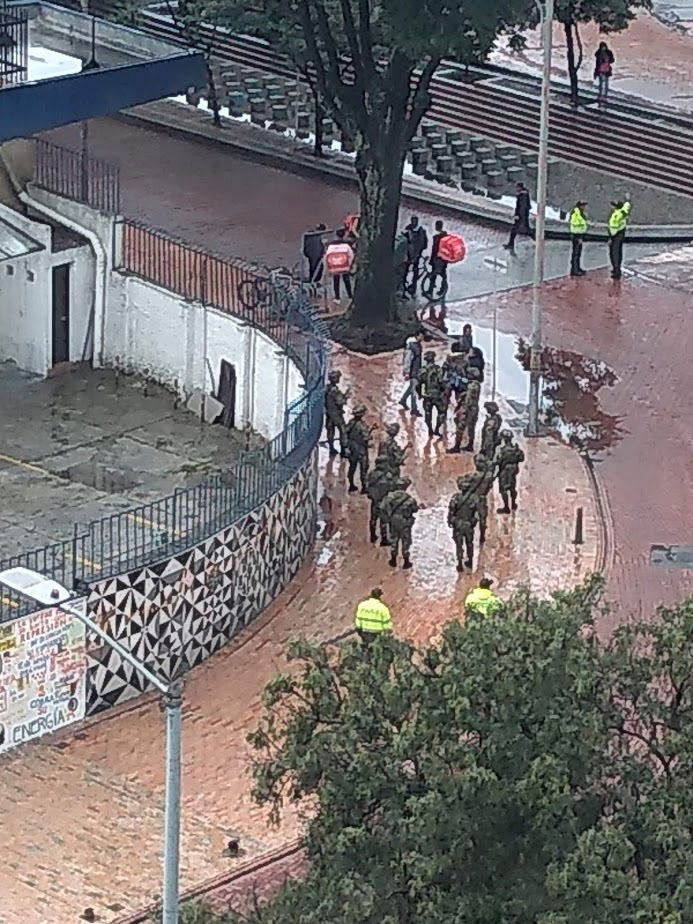Episode 1 - Militarization and Confinement

In this first episode, we talk with Dr. Lina Pinto-García about a text she wrote with Dr. Diana Ojeda for Platypus, a blog of the American Anthropological Association that publishes texts by scholars of Science & Technology Studies (STS). The piece, entitled The militarization of life under war, "post-conflict," and the Covid-19 crisis, describes the long and continuing history of various governmental technologies in Colombia that rely on militarization and are being deployed to enforce confinement in the context of the current pandemic. The authors examine the continuities and reinforcement of violence and military power across times of conflict, post-conflict, and the Covid-19 public health emergency. The abstract of the article reads as follows:
Based on the current situation in Colombia, in this text, we seek to analyze the continuity and fluidity of practices and discourses of militarization in the context of war, post-conflict and the current pandemic. Militarization appears as a government technology that is easily recycled and redeployed by the state (as well as by illegal armed groups) in places where war has become an ordinary aspect of daily life. We argue that it is precisely in contexts that coexist with a war-torn past and present that the use and reuse of militarization—this time in the name of collective health—becomes even more dangerous and hostile.
It is a thrilling must-read, and it prompted us to want to focus on the deeper and unseen spatial technologies of government, and how the ongoing situation may exacerbate them.
Drawing on an interdisciplinary background in biology, biotechnology, and STS, Dr. Lina Pinto-García is an ethnographer of science, medicine, and the environment. Her work examines environmental and human health in spaces marked by extreme inequality, violence, and the aspirational logics of peace. Based on her doctoral research, she is currently working on a book project that explores the entanglement between a vector-borne disease called leishmaniasis, (post)conflict, and public health in Colombia.